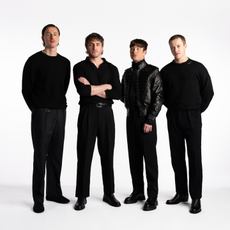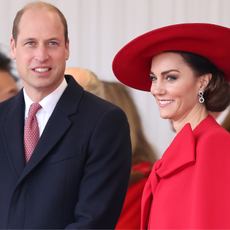The end of the office? How COVID-19 crushed the 9-5
Marie Claire collaborated with LinkedIn to investigate how you feel, following months of enforced WFH, about resuming the traditional 9-5. The results may surprise you
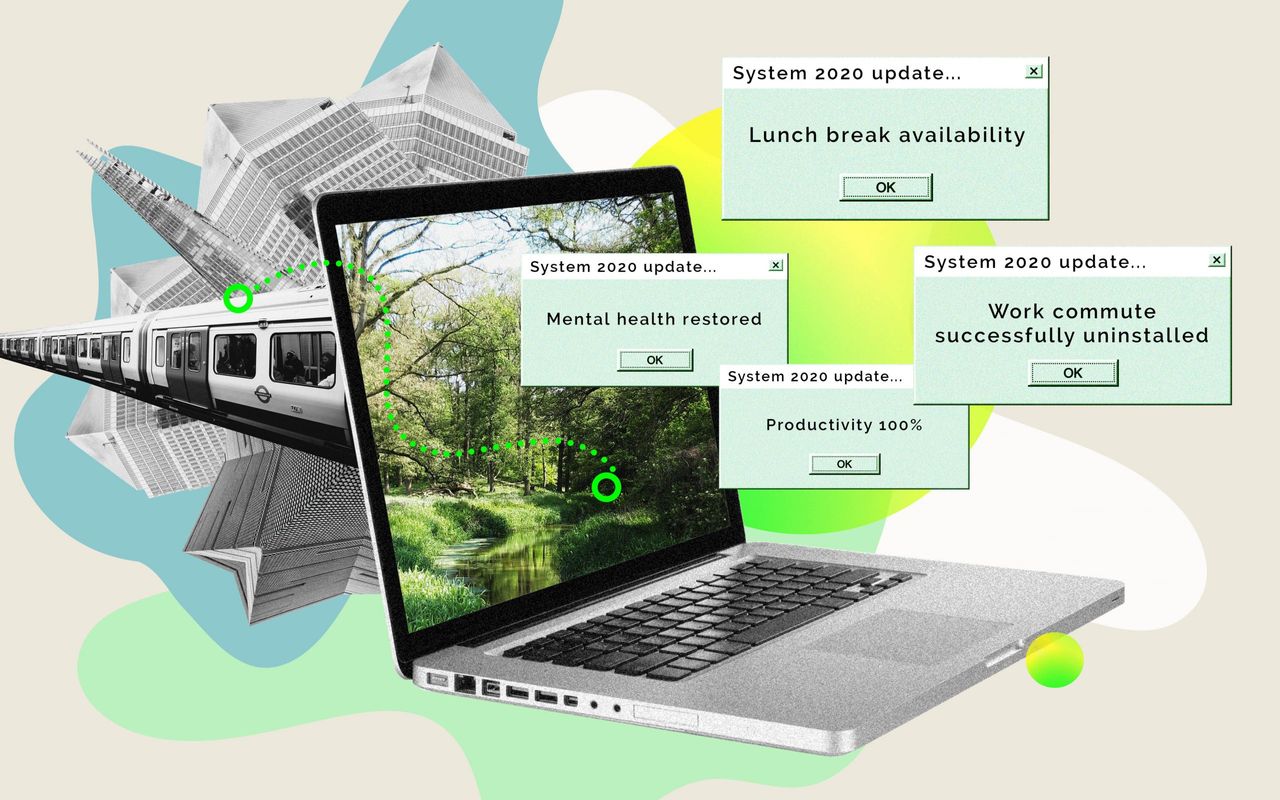
Marie Claire collaborated with LinkedIn to investigate how you feel, following months of enforced WFH, about resuming the traditional 9-5. The results may surprise you
The subject of our work/life balance has been one of heated debate over the past few years. Does flexible working boost employees’ productivity? Or is the agile working pattern away from the office an opportunity for staff to avoid accountability and fail to manage their time efficiently?
Coronavirus abruptly ended this debate. Suddenly, instead of most workers leaving their homes every day to do their job, we were all instructed to work from home, in the context of a pandemic.
While the majority adapted – some even thrived – at working from home, the coronavirus effect on the job market has been devastating. Millions are on furlough (a French word few knew to mean as ‘leave of absence’ before March), and thousands of jobs are at risk with companies closing stores and restructuring in a bid to survive financially.
With the government pushing for a return to the office as soon as possible due to economic reasons, Marie Claire has joined forces with the largest global professional networking site LinkedIn to learn exactly how the British population feels about resuming the traditional 9-5.
Editor in Chief of Marie Claire Andrea Thompson says: 'Having spent much of lockdown investigating the Future Of Work on our platforms, we polled 2000 men and women in the UK who had been working from home to investigate how mindsets had changed. What we discovered was a wholesale shift in attitudes towards traditional working models and office structures.
'Lockdown forced millions of us into remote working overnight accelerating changes towards flexible working and technology that had been slowly happening over the past decade. The result is that 3 in 5 bosses and employees now see the Monday to Friday 9-5 model as finished, with a typical worker viewing the future of work as a blend of remote and office with 3 days spent at home.'
Marie Claire Newsletter
Celebrity news, beauty, fashion advice, and fascinating features, delivered straight to your inbox!
From reluctance to spend hours a day commuting to increased productivity and better mental health and wellbeing, here’s everything you need to know…
The end of the office
Long gone is the WFH resentment, this period of enforced remote working has heightened the population’s desire to ‘stay home’, as Prime Minister Boris Johnson instructed for so many weeks.
Almost three in five (59%) said that after lockdowns lift, they would like to work from home some or all of the time in their current job. A quarter (25%) would prefer to work from home two days a week. And over a quarter (26%) would prefer three days in their own personal space.
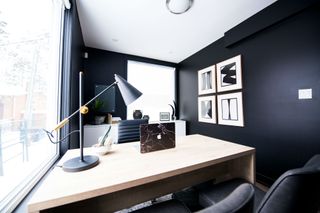
Supporting this is Sophie Cruikshank, a 30-year-old consultant for Big Four firm. ‘As an employee of a firm who supports flexible working, pre-lockdown I would work from home one day per week.
‘The pandemic means I am currently working from home full-time and I’m feeling positive about this new approach to working. It has proven all the face-to-face meetings could have been a call and I can now take a full (!) lunch break. Also, without my commute, I'm able to fit more of the things I enjoy into my day, such as a walk in my local park.’
She adds, ‘I am hoping to work from home two to three days per week upon our return to the office in 2021.’
Emily Spaven, UK News Editor at LinkedIn, tells Marie Claire that like Sophie, the platform has seen an increase in posts from those who are really enjoying working from home. She expands, 'It seems most people would like something of a mixture – spending some days at home, and the rest in the office.'
Before COVID-19, the average Londoner spent around 74 minutes commuting to the office every weekday. After the 1918 - 1919 flu pandemic, it took more than five years for people to get comfortable taking trains again. It could be similar for this pandemic, as over half (52%) of respondents we spoke to admitted they are concerned about contracting COVID-19 in their workplace, which cites another reason why they don’t want to return there.
Emily says the platform has seen 'significant' increases in conversations around the topic of returning to work. She expands, 'The main concerns our members seem to have about heading back to the office, or other physical workplace, include having to take public transport on their commute, having to work in close proximity to others, their workplaces not being clean enough and their colleagues not taking the threat seriously. There certainly seems to be quite a sense of anxiety around it.'
But interestingly, almost as many people (47%) are worried about losing their work/life balance gained through lockdown or working from home, as they are about catching coronavirus at work (52%). This is especially prominent for the 35-44 years old group and people in senior management positions.
With this in mind, the results showed that 1 in 5 (18%) want a new role within their current industry that gives them more flexibility. And 1 in 6 (16%) are considering an entirely different career in order to achieve this goal. Keeping a newfound work/life balance is of utmost importance to the population.

As we know, it is the older population who is at greater risk of COVID-19. It was interesting to note, therefore, that just 2% of respondents aged 16-24 would prefer to never work from home moving forward. This is perhaps the strongest case for saying the office, as we know it, is ‘over’, as the digital-savvy Generation Z do not want to be sat at office desks, despite their health widely permitting them to.
Following COVID-19, over 3 in 5 (63%) respondents strongly or somewhat agree that following the pandemic the 9-5 is, in fact, over. This shows that the 9-5 as we know it doesn’t suit workers, and perhaps, it never did. It was a structure imposed in the 1920s at a time when society encouraged men to work and women to be housewives. These office-bound hours therefore supported the careers of men, and have not been changed - despite women and disabled members of the community now actively participating in it.
Are we all finally on board with change? It looks like it, Emily says. 'I've spoken with a number of industry leaders who say the pandemic has really made them rethink their policies on flexible working – they've seen that many of their employees are happy being able to work from home, productivity levels remain high, but also there is an opportunity to reduce their overheads – perhaps they don't need such a large office space any more.
'I've also seen CEOs discussing with delight the fact they don't have to do (or aren't able to do) so much international travel at the moment, and they plan to continue attending more of their meetings virtually, which is great not only for their work/life balance, but also their carbon footprint. There's such a strong demand now for more flexible working hours, and employers are really starting to pay attention, which is great to see.'
Domestic labour divide
Before the coronavirus crisis, there was a clear predominance of women picking up the majority of household chores. But with men now being at home more, did that change? We’re pleased to report that yes, it did.
When asked, ‘how many hours on an average working day did you, your partner or a third party spend on domestic duties (such as cooking, cleaning and dog walking - but excluding child care and home schooling)’ just over a third (34%) of male respondents said they themselves spent two hours or more each day on domestic duties. Almost half (46%) of female respondents who said the same.
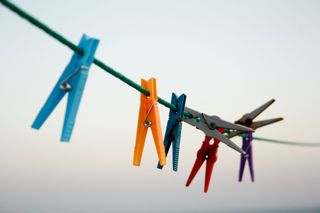
It seems likely this outcome is because men are physically present in the home more than usual and have picked up household chores to ease the burden on their other half who is perhaps also working, as well as juggling childcare duties.
Sarah Morton, a writer based in London, supports this theory. She lives with her partner and his nine-year-old daughter. She told Marie Claire having her other half at home with her made it feel like they were ‘working as a team.’
She expanded, ‘As he was in the small space of the flat all the time, he wanted it extra clean and tidy, and that meant doing it himself. I still can't get him to clean the bathroom, but he does the dishes and overall, he’s changed his (lack of) housework habits for good. It’s actually made me like him more.’
This cultural shift of sharing both parental and housework duties is extremely positive. Marie Claire has long noted the importance of male allies in the workplace, to ensure there is a balanced landscape and equal opportunities and pay for all, and the same is true at home.
Mental wellbeing
Mental health of many employees will be (or has already been) affected by the lockdown, and by challenges connected with COVID-19, but those who are currently on furlough seem to worry about everything much more.
61% are concerned about job security (vs 34% of those who aren’t on furlough). Almost half (47%) of furloughed respondents say that their own career has been the most impacted by COVID-19 in their household.
Just 21% of non-furloughed respondents said the same. Over 1 in 5 (21%) respondents who are on furlough said they plan to seek a new job that allows them to work from home all or some of the time after lockdown lifts, compared to 1 in 8 (12%) respondents who are not on furlough who said the same.
New opportunities
Charlotte Davies, LinkedIn UK Careers Expert, tells us the platform has seen three times as many people applying for every role compared to this time last year, making it a crowded and competitive space. But positively, she adds, 'There are opportunities out there. New data from LinkedIn has revealed the most in-demand roles, including Sales Representative, Customer Service Specialist, Graphic Designer and Digital Marketer. All these jobs offer great long-term employment prospects, and a good salary.'
It goes without saying that many industries have been hit hard by the pandemic, in particular, Charlotte tells us, 'Sectors such as Recreation & Travel, Media & Communications and Real Estate. Applications for roles within these industries are down 53%, 43% and 35% respectively compared to last year - partly due to fewer open roles in these sectors and comparatively more available in other industries.'
Finally, 15% are concerned that they have suffered from a loss of skills during lockdown. Interestingly, it is over-indexing for the north regions of England (e.g. Leeds).
Charlotte tells us, 'Moving into a new role or industry may require re-skilling or up-skilling - but don’t be put off by new challenges - you might end up finding something you really love. LinkedIn and Microsoft have joined forces to offer nearly 1,000 hours of free learning content, with courses directly related to these in-demand roles, which you can find through LinkedIn Learning.'
Despite (or thanks to) all the changes to the way we work during lockdown, many people have managed to discover their new – and better - way to get work done. Industries and companies will need to change their culture to suit the work/life balance even better.
Working from home is and will continue to be desirable. In fact, it is likely to become an employee expectation when looking for a new job from now on. Put simply, we don’t want a return of our old lives – we want to rectify the imbalanced working structures now and for good.
Read our guide to turning any WFH space into a green office, while you're here.
Olivia – who rebranded as Liv a few years ago – is a freelance digital writer at Marie Claire UK. She recently swapped guaranteed sunshine and a tax-free salary in Dubai for London’s constant cloud and overpriced public transport. During her time in the Middle East, Olivia worked for international titles including Cosmopolitan, HELLO! and Grazia. She transitioned from celebrity weekly magazine new! in London, where she worked as the publication’s Fitness & Food editor. Unsurprisingly, she likes fitness and food, and also enjoys hoarding beauty products and recycling.
-
 "I'm a Black barrister working in a broken justice system"
"I'm a Black barrister working in a broken justice system"Alexandra Wilson is a 26-year-old barrister speaking out about sexism, racism and class inequality at the very heart of the legal system. She shares her disturbing experiences, and why activism will make a difference.
By Alexandra Wilson
-
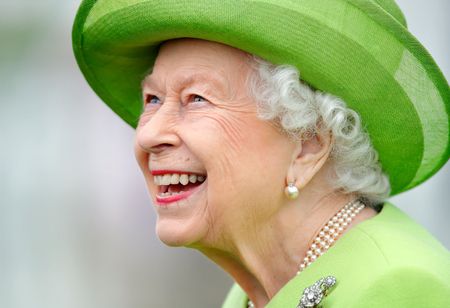 Feeling sad this week? Learn about the 5 steps of grief, plus how to avoid it consuming you
Feeling sad this week? Learn about the 5 steps of grief, plus how to avoid it consuming youAs the nation mourns Her Majesty The Queen.
By Ally Head
-
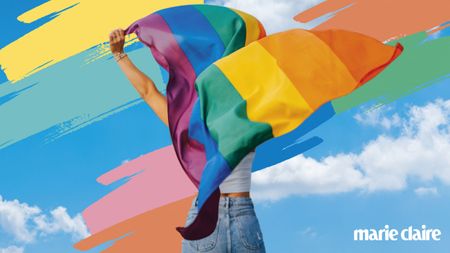 Pride events: 7 IRL and virtual celebrations to add to your calendar for 2021
Pride events: 7 IRL and virtual celebrations to add to your calendar for 2021Ready to celebrate?
By Rosie Grant
-
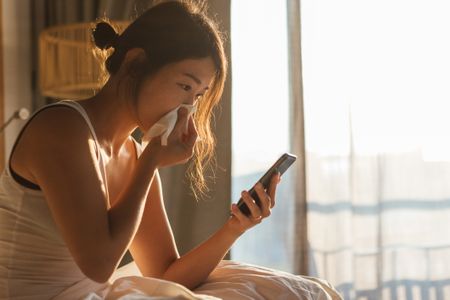 Coronavirus versus cold symptoms: How to know whether you've got COVID 19 or a common cold
Coronavirus versus cold symptoms: How to know whether you've got COVID 19 or a common coldThis is important. Read guidance from the experts now.
By Ally Head
-
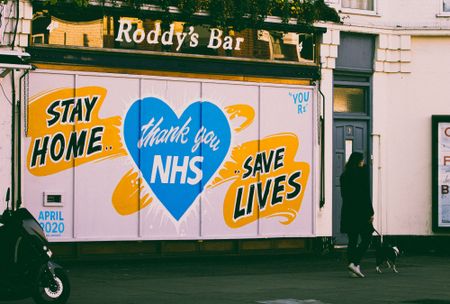 A nurse shares important advice for life post-lockdown
A nurse shares important advice for life post-lockdownAs we mark International Nurses Day 2021 on May 12, a clinical nurse consultant shares her expert advice on how to navigate life with fewer and fewer restrictions
By Olivia Adams
-
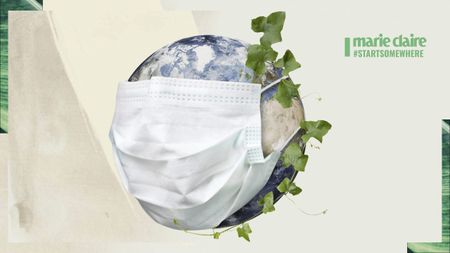 How COVID-19 made us forget our morals on plastic
How COVID-19 made us forget our morals on plasticPre-pandemic, we cared about our habits of plastic use. Lockdown changed all that - but it's not too late to continue the fight
By Olivia Adams
-
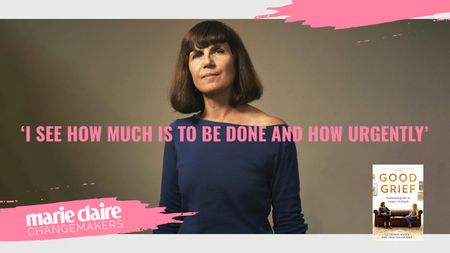 Catherine Mayer on women's rights: 'I see how much is to be done and how urgently'
Catherine Mayer on women's rights: 'I see how much is to be done and how urgently'Co-founder of the Women's Equality Party, Catherine Mayer, was married to influential musician Andy Gill until his death in Feb 2020. This International Women's Day, Mayer shares with affecting honesty how grief adds clarity to her life-affirming activism
By Maria Coole
-
 Tanya Burr shares her top 6 resources for educating yourself - and growing - this IWD
Tanya Burr shares her top 6 resources for educating yourself - and growing - this IWDThe theme of this International Women's Day is Choose to Change - let Tanya help you become a change-maker with her top resources.
By Ally Head
